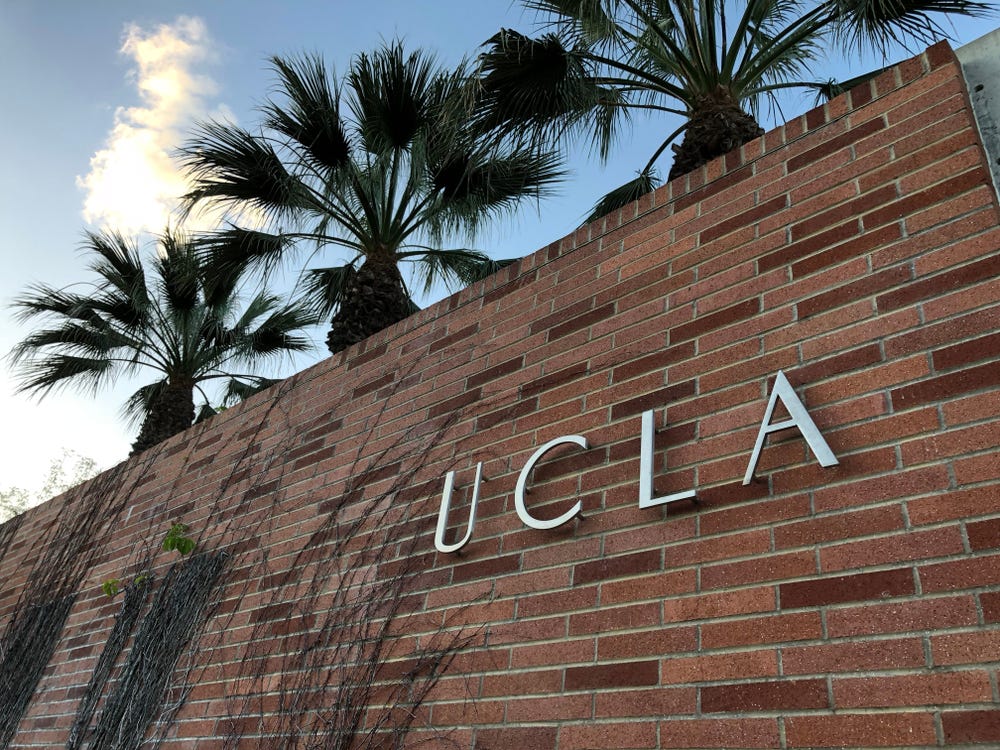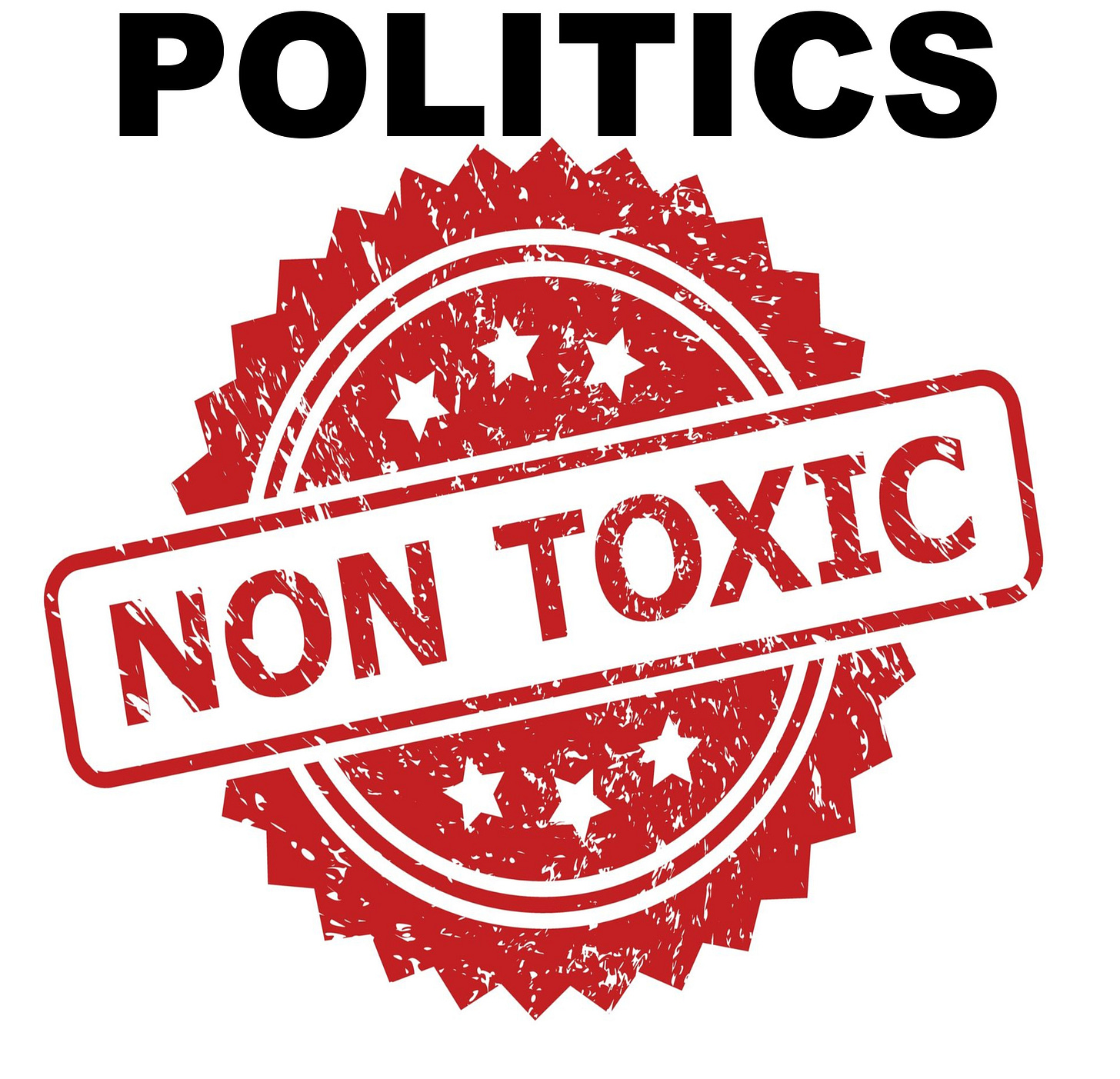E-Pluribus | July 9, 2022
A UCLA professor surrenders tenure, why doesn't Americans' love of many choices extend to politics, and an alternative to the 1619 Project.
A round-up of the latest and best writing and musings on the rise of illiberalism in the public discourse:
Joseph Manson: Why I'm Giving Up Tenure at UCLA
Tenure, particularly at a prestigious university, is a hard won and valuable privilege not to be surrendered lightly. Writing for Bari Weiss’s Common Sense, UCLA professor Joseph Manson, however, believes he has no choice given the direction of the school, and that the price of giving up tenure is not as high as the price of keeping it.
The principal driver of the doublethink in my department and so many others at UCLA is fear of the woke faction.
Signs of this fear are omnipresent. Discussing whether to stop requiring the GRE (a standardized test, like the SAT) from applicants to our Ph.D. program, one colleague told a meeting of the biological anthropology subfield that he regarded the GRE as the most informative part of an applicant’s dossier, but that we had no choice but to vote to stop requiring it. Why? Because otherwise we would be regarded as racists. (I was the only person to vote against dropping the GRE requirement).
Asking a question following a public talk, a colleague conspicuously used the word “Latinx” even though the speaker had described both herself and her research subjects as “Latinas” and even though he himself, in a previous private conversation, had mockingly referred to the opinion polls showing that only a small minority of Hispanic Americans prefer to be called “Latinx.”
Outside the anthropology department, UCLA as a whole is showing all the signs of woke capture that typify the contemporary U.S. university. Emeritus Professor Val Rust (Graduate School of Education) was banned from campus after incurring the wrath of graduate student adherents of Critical Race Theory. Researcher James Enstrom (Environmental Health Sciences) and lecturer Keith Fink (Communication Studies) were fired from dissenting from the woke orthodoxy. Gordon Klein, after being fired by UCLA’s business school in Spring 2020 for refusing to use race-based grading criteria, mobilized mass support and legal assistance, was reinstated, and is now suing the university.
Statements recounting one’s activities on behalf of Equity, Diversity and Inclusion are mandatory in faculty job applications and in promotion dossiers. Among its “Gender Recognition” policy recommendations, a university task force is calling for “curricular updates . . . For example: inclusion of non-binary and intersex identities in biology courses for health care practitioners.” Is this a threat to pressure course instructors in the life sciences and social sciences to deny the human sex binary? The experience of former Penn State evolutionary biology postdoc Colin Wright suggests that it might be. For arguing against assertions that “biological sex is a continuous spectrum” and that “notions of male and female may be mere social constructs,” Wright’s academic career was derailed by an online mob. He now writes on Substack.
Read the whole thing.
Stephan Jenson: Dear Americans: Your Politics Don’t Have to Be This Toxic
At Quillette, Stephan Jensen, a Norwegian management consultant based in London, has some friendly advice for Americans regarding politics: chill out. Jensen believes much of the rancor is tied to the fairly rigid two-party system in this country, a feature he finds bizarre given Americans’ penchant for a wide range of choices in so many other spheres. Jensen does not see multiple parties as a panacea, but believes the coalitions and compromises that a multiparty system requires could lower the temperature and bring more mutual understanding to our politics.
Even more bizarrely, there seems to be an unwritten rule that one’s opinion on one issue must determine one's opinion on every other issue in the political universe. Not to mention every other conceivable cultural, religious, or social issue, as well. It's as if there are not only just two possible answers to each political question but also only two possible types of people: “liberals” and “conservatives.”
The assumption is so absurd that to have arrived at it without having first been diagnosed with clinical psychosis almost seems an achievement worth celebrating. And it’s devastating for democracy: it is a view of an America with no grey areas, no shared values, no opportunity for mutual understanding or respect, and no room whatsoever for compromise and coming together. Oh, liberals are liberals and conservatives are conservatives, and never the twain shall meet.
The extreme restrictiveness of America’s binary politics is especially strange, given America’s love of unlimited choice in every other aspect of life. Do you want steak in your ice cream? Awesome! Your dog’s name on your license plate? Cake for breakfast? Surgery to make your ears look like those of a magical elf? That’s your God-given right as an American, and no one can tell you otherwise! One can almost imagine a choir of patriotic angels breaking out in a divine rendition of ‘The Star-Spangled Banner’ every time someone insists on having peanut butter and chocolate chips atop their deep-fried (but gluten-free) cheeseburger, singing in celebration of an American exercising individual choice. The more idiosyncratic the choice, the better.
Read it all here.
Oliver Wiseman: The antidote to America’s race wars
The New York Times’s 1619 Project was controversial even before its official release, and the intervening years have not done much to dispel that. At Unherd, Oliver Wiseman writes of another look at the same years of history, African Founders by Hackett Fischer. While not glossing over the horror of slavery, Fischer takes a broader look the experiences of black Americans and how, despite the undeniable and at time seemingly insurmountable obstacles, the promise of American freedom ultimately redounded to the benefit of all.
African Founders is a successor to Hackett Fischer’s most lauded work, Albion’s Seed. Published in 1989, it described how settlers from different parts of the British Isles imported a range of enduring “folkways” — culture, religion, language, ethics and so on — to different parts of what would become the United States: East Anglican puritans in New England, southern gentry in Virginia, Quakers from Wales and the Midlands in Pennsylvania, and Scots-Irish border folk in Appalachia. (The enthusiasm of the descendants of that final group for Donald Trump caused many pundits to dust off their copies of Albion’s Seed after 2016.) Taking the same regional approach, African Founders charts the migrations, cultures and political and social contributions of slaves, freed slaves and their descendants throughout America.
[ . . . ]
Hackett Fischer is clear that none of this should detract from the cruelty of slavery or the racist violence that followed. His book is full of terrifying detail of the lives of slaves across America, including detailed accounts of how those experiences varied over time and geography. But he understands that lingering on the horrors of slavery only get you so far in understanding America’s past.
[ . . . ]
Rather than displaying a curiosity at the paradox that has animated so much American history. . ., the 1619 approach dogmatically sweeps aside everything other than the existence of slavery as minor details in the story of the United States.
African Founders, by contrast, demonstrates that there doesn’t need to be a trade-off between “centring” the experience and stories of black Americans and an appreciation of the gift of American liberty. Indeed, the takeaway from Hackett Fischer’s work is that the latter cannot be achieved without the former.
“What if we told a story that centred slavery and Black Americans and, well, no one read it,” writes Nikole Hannah-Jones in the introduction to The 1619 Project: A New Origin Story, remembering her fretting on the eve of The New York Times magazine special edition. She needn’t have worried. It was an overnight sensation. Indeed, measured by impact on the public conversation, rather than merit, the 1619 Project is a more successful contemporary work of opinion journalism or pop history than any other in recent history.
Read it all.
Around Twitter
Kmele (Foster) reaches back to the 1930s for a quote from William F. Russell of Columbia University on free speech, via The Atlantic:
Via Heterodox Academy, a few excerpts from a podcast featuring Glenn Loury and John McWhorter on having productive conversations:
And finally, Jesse Singal with an especiallegregiousus example of “experts say”:












